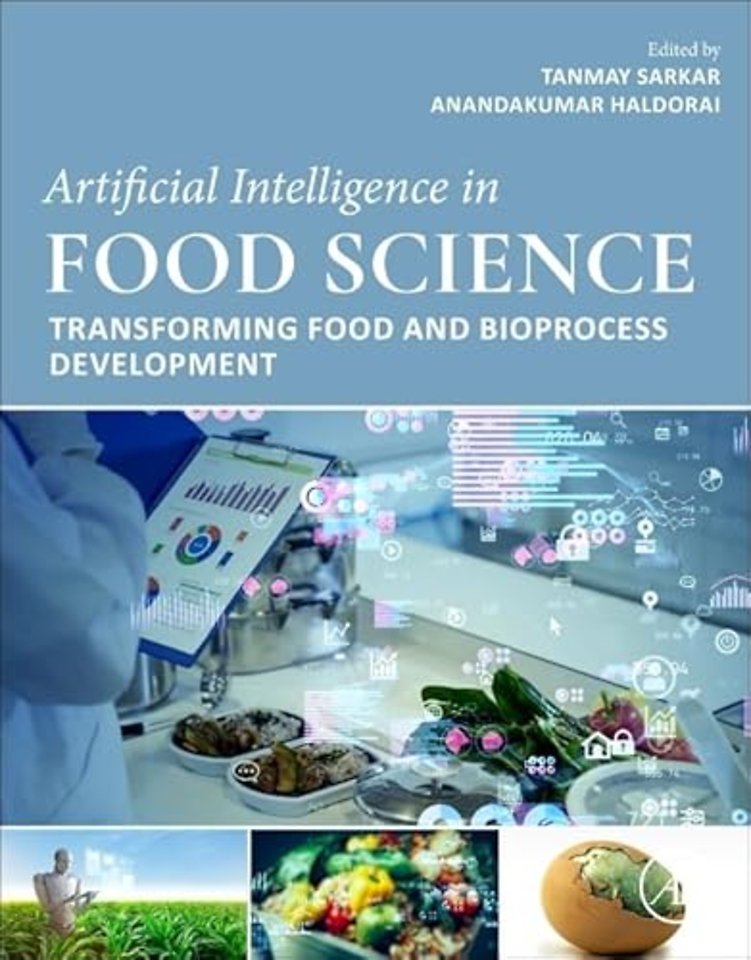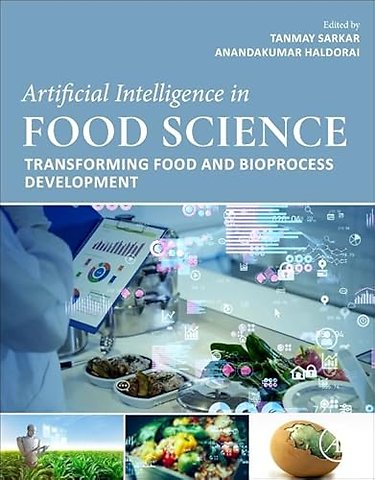Artificial Intelligence in Food Science
Transforming Food and Bioprocess Development
Samenvatting
Artificial Intelligence in Food Science: Transforming Food and Bioprocess Development covers the AI and machine learning techniques that are reshaping the food science landscape, introducing innovative solutions to improve food processing, safety, and sustainability. This book delves into the transformative potential of these cutting-edge technologies, exploring how they optimize food production, enhance bioprocess development, and tailor products to meet specific consumer needs. By integrating AI, researchers and industry professionals can address challenges such as resource efficiency and quality assurance, paving the way for a more sustainable and technologically advanced food system.
Beyond optimization, the book examines AI applications in predicting food trends, analyzing complex datasets, and developing personalized nutrition plans. It provides insights into how AI enhances food storage, packaging design, and even consumer engagement through predictive models. With detailed case studies and forward-thinking perspectives, this book serves as a comprehensive guide for harnessing AI's power to revolutionize food science and bioprocess innovations.

